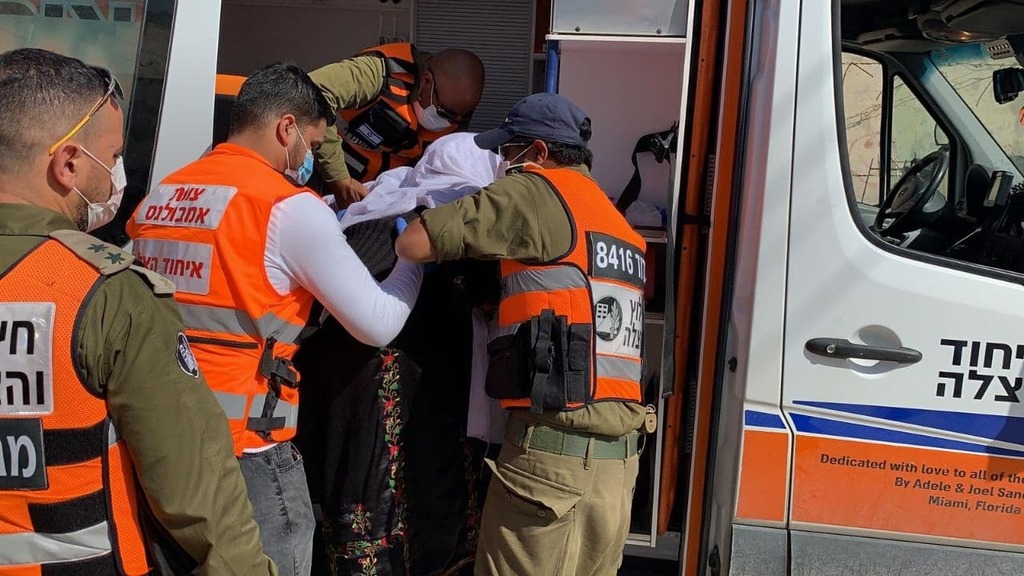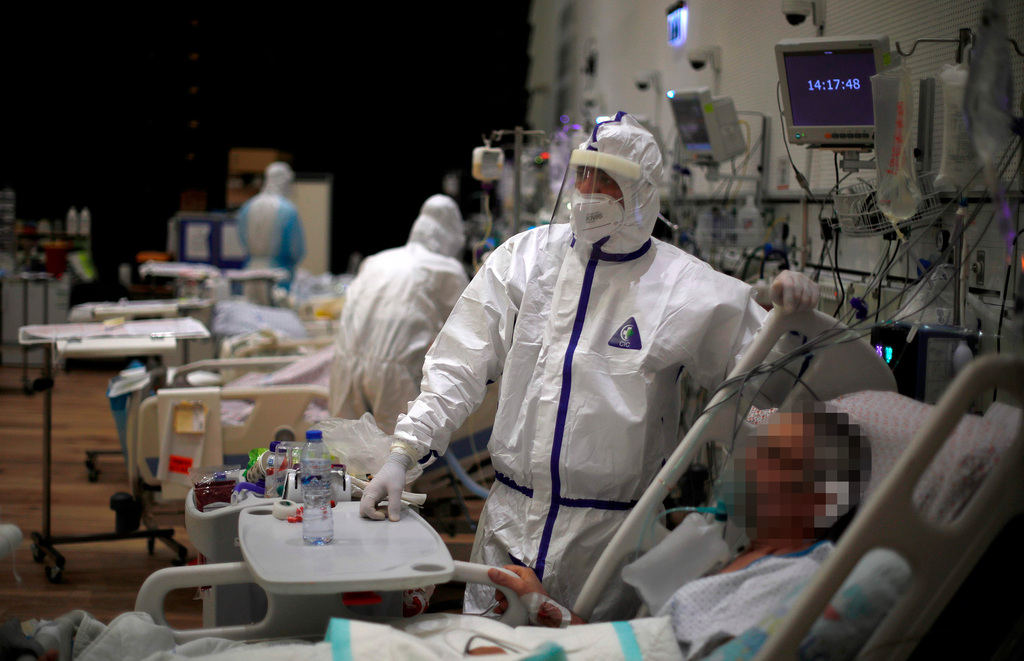Getting your Trinity Audio player ready...
The coronavirus pandemic claimed 57 lives in Israel over the weekend as the Military Intelligence taskforce on the coronavirus warned of an expected leap in the infection rate as the country emerged from its third lockdown Sunday.
Testing showed the infection rate remained at a high of 9.4% despite a month of strict closures and Israel's widespread vaccination program.
The COVID-19 death toll in Israel since the start of the pandemic has risen to 5,074. As of Sunday morning, there were 1,768 people hospitalized in Israel with COVID-19, of which 1,110 were in serious condition including 302 people on ventilators.
Despite the lockdown, Israel has just two communities – Nesher in the north and Rahat in the south - in which the infection rate is considered low.
None of the 16 largest municipal areas in the country, which each have a population of over 100,00 people, have a low infection rate.
Just 42,200 vaccinations were administered on Saturday, compared to around 76,600 the Saturday before and some 93,000 a week earlier than that.
The Military Intelligence taskforce warned Sunday morning of an expected massive rise in infection rates in Israel following the decision to lift lockdown restrictions from 7am coupled with the more infectious British mutation.
"More than ever people need to show personal responsibility and abide by the regulations," the taskforce said in its daily report Sunday.
"Israel is coming out of its third lockdown with a very high infection rate – the positivity rate and congestion in hospitals remain high even though there has been a certain reduction in serious cases in the last week," the report said.
The taskforce also pointed out that the reproduction ("R") number has again passed 1, meaning that each infection person is passing the disease onto more than one other person despite the lockdown.
2 View gallery


The IDF has started helping to administer vaccines to people who are housebound
(Photo: IDF Spokesperson's Unit)
Israel took tentative steps to emerge from its third lockdown on Sunday, with people no longer having to remain within 1,000 meters of home, national parks set to reopen, B&Bs allowed to offer accommodation to nuclear families and restaurants resuming takeout services as well as deliveries.
Workplaces that can serve one customer at a time, such as hairdressing salons, and businesses not dealing with the public were also allowed to reopen.
The government was due to meet at 5pm to discuss further steps to emerge from the lockdown, including reopening schools and a pilot plan to reopen certain venues and shops for people who have had both doses of the vaccination or those who have recovered from COVID-19.


